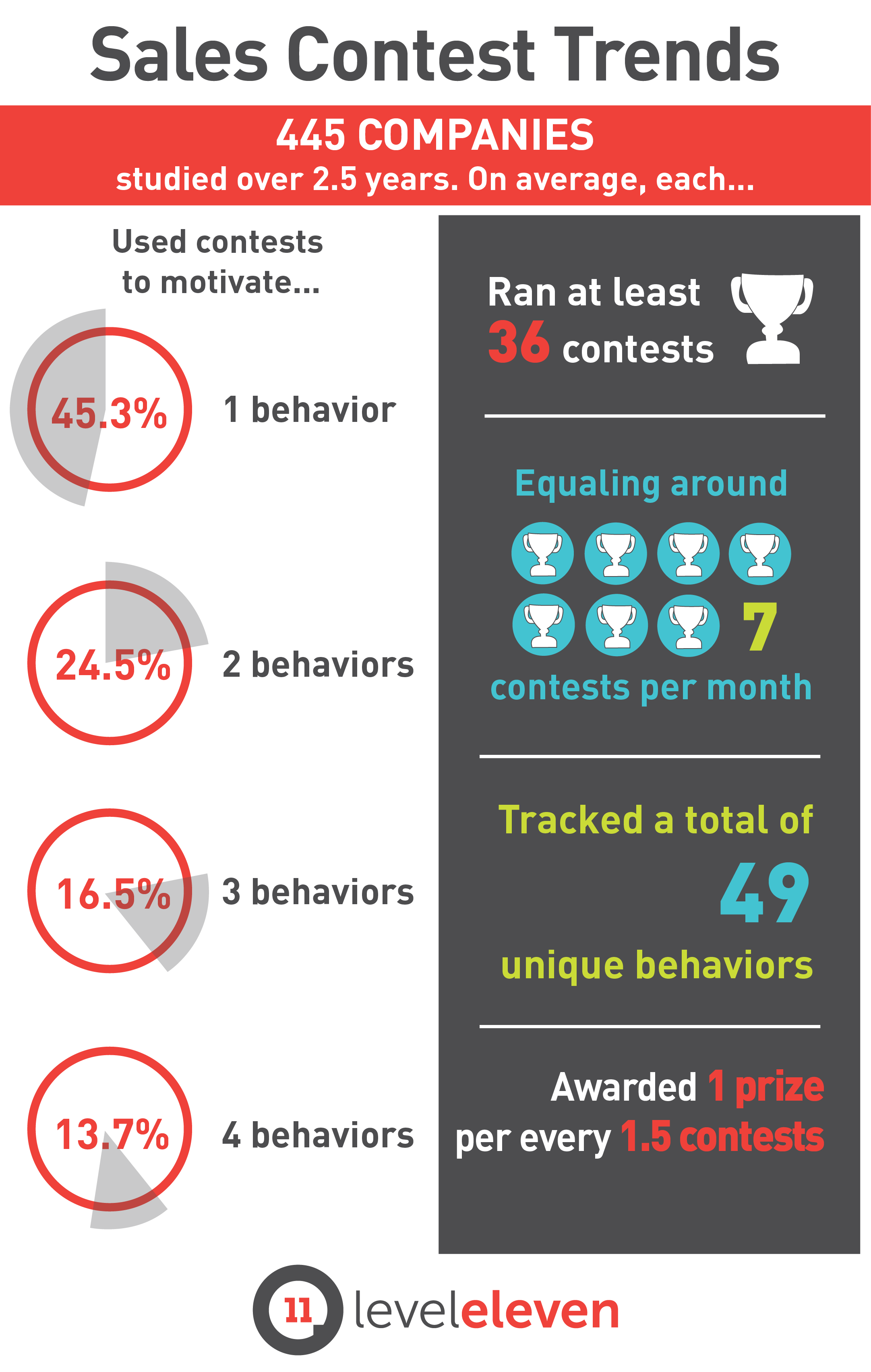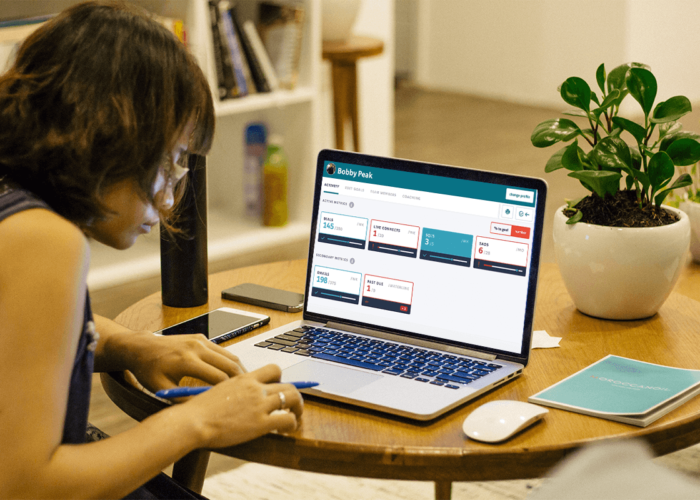 Most sales leaders run sales contests; all sales leaders love benchmark data. (Or they should.) If you’re a sales leader, that means you’re in for one awesome blog post.
Most sales leaders run sales contests; all sales leaders love benchmark data. (Or they should.) If you’re a sales leader, that means you’re in for one awesome blog post.
For the last two and a half years, we studied sales performance at 445 companies. Today, we broke some of it down according to sales contest data.
Here’s what we learned:
Sales Contest Behaviors
Sales contests can seriously motivate, especially when crafted carefully. When many sales leaders discover this with their first successful contest, they tend to overcomplicate. They get so pumped about the spike they just saw in sales performance that they want to use their next contest to motivate everything they need to fix.
Not a good idea.
Complicated contests confuse participants and water down behaviors motivated.
The companies we studied clearly understand this. The majority (45.3%) of their contests focused on just one behavior, meaning participants received points for completing one sales activity, like logging calls or booking demos. Contests rewarding two behaviors comprised 24.5% of total contests run, three behaviors comprised 16.5% and four behaviors came in at 13.7%.
[Read: “10 Tips for Running the Ultimate Sales Contest”]
Timing of Sales Contests
The companies studied ran an average of seven contests each month. At first glance, this may seem like too many. There is such a thing as sales contest fatigue. But, many of these companies were simply taking advantage of another best practice: running contests in short bursts, so as to drive a sense of urgency and engagement.
One popular contest among these companies is about as short as it gets: It’s what we call “Power Hour,” a one-hour blitz to immediately spike key sales activities. These types of sales contests typically take place around calls — for example, motivating teams to follow up with leads from an event or book demos around a certain product.
[Want more on this? Read “Sales Contest Timing: What You Need to Know”]
Sales Contest Prizes
A very common misconception exists around sales contests, and it usually sounds like this: “We don’t have enough budget to run contests all the time, because we can’t keep buying prizes.”
The good news? You don’t have to. We’ve seen companies repeatedly produce significant ROI relying only on the visibility, recognition and competition that come with contests to motivate. (Read those stories here.)
The companies studied only offered prizes with one of every three sales contests. And of those prizes offered, not many were extravagant. Things like Starbucks gift cards or desk decorations appeared much more often.
[Get the eBook: “102 Inexpensive Sales Incentive Ideas”]
That summarizes the main findings in this round, but we have much more ahead. In the meantime, we’ll leave you with this visual recap:




